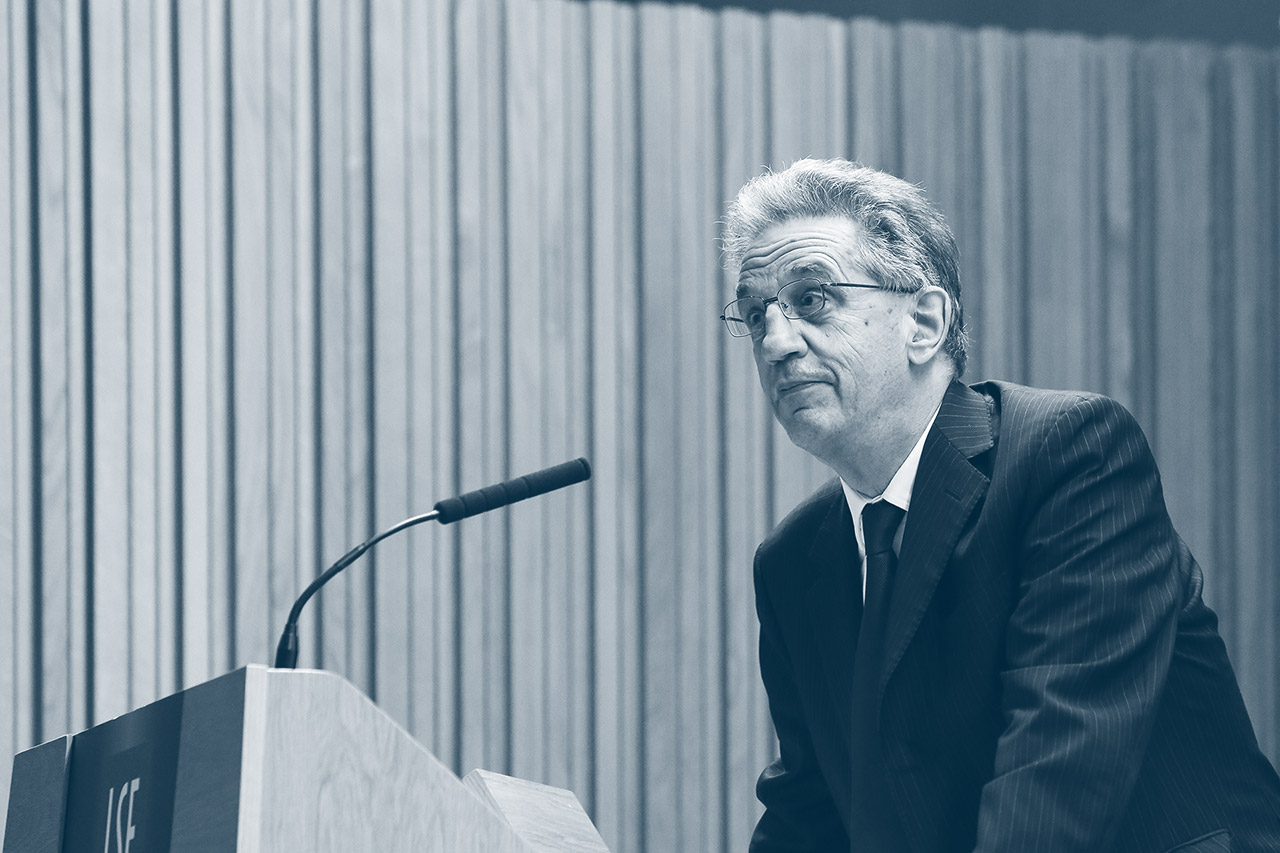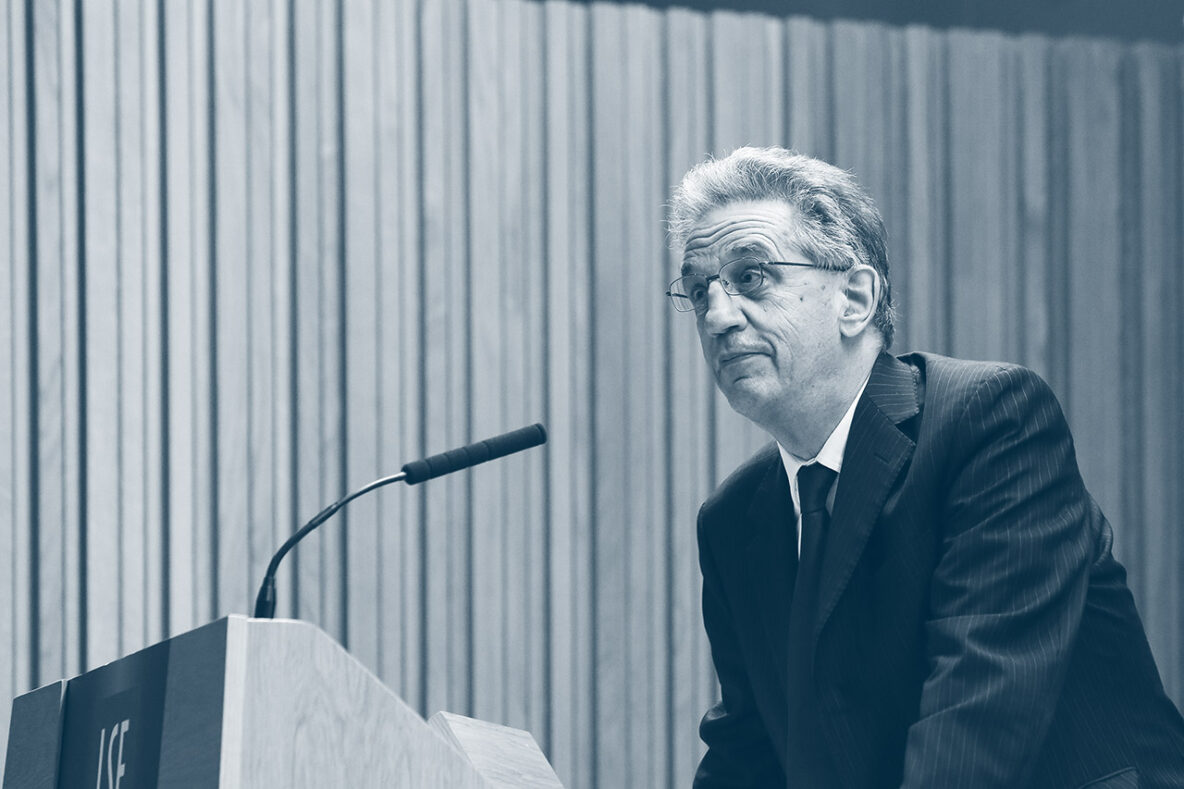Interview with Sir Julian Le Grand | May 20, 2025

Baby Bonds are an increasingly popular bipartisan government policy in which every child born into poverty receives a publicly funded trust account at birth. This “start-up capital” allows young adults to access education, home ownership, and entrepreneurship, enabling them to build wealth and lead lives that are hopeful, fulfilling, productive, prosperous, and self-directed. Follow our Baby Blogs series to learn about the vision, politics, and people behind Baby Bonds and their transformative impact on the lives of young people, their families, communities, and our economy.
For this installment of Baby Blogs, we spoke with Sir Julian Le Grand, Professor of Social Policy at the London School of Economics (LSE) and member of the LSE Marshall Institute, about the Children’s Trust Fund in the UK and the life-changing impact of early wealth-building opportunities.
Tell me a little bit about who you are and where you grew up.
I grew up in the south of England but did my PhD in economics at the University of Pennsylvania in the United States where I had a wonderful time. It’s made me a lifelong Americanophile. I’ve taught at various universities, including the University of California at Santa Barbara, but I’ve spent most of my career at the London School of Economics. I also spent a couple of years working in 10 Downing Street as a senior policy advisor to former Prime Minister Tony Blair.
What were some of the important influences that led you to become an economist, and then build a career in public service?
The 1970s had been a fairly miserable time, certainly in the United Kingdom. It had been under Liberal-Labor control during that time and it had not worked very well. The progressive or the center left was in disarray. So I worked with colleagues who were similar to me—mostly economists and philosophers—to try and work out some alternatives to the extreme left, and indeed the extreme right, at the time. We produced a book that was published by Oxford University Press on what we called at the time, Market Socialism. A better title would have been Market Egalitarianism because it wasn’t really about socialism as one might understand it. Basically, it was arguing that the free market, capitalism, and so on, had many merits, but the chief problem with it was the great inequality that it tended to generate. However, it was possible to tweak the market in various ways so as to lead to a more egalitarian outcome—and the Baby Bond was one of those tweaks.
What evidence did you use to show that wealth matters?
There were a number of longitudinal studies in the UK where somebody had been surveyed at birth, and then they’d been followed up in 10 year intervals to see how their life courses would work out. Some of these studies showed one rather striking thing, which was that if you had a small amount of capital at the age of 18 or 21—the equivalent of $3,000 or $5,000 or less—you had a remarkably more successful life trajectory from then on. The evidence suggested that people who started off with a small amount of capital at that time would have better jobs and higher incomes and more savings in 10 years. Even their marital stability would be greater. And that seemed to go on as their lives progressed. They just did systematically better in almost every respect than their peers with no capital at 21. So it seemed there was what became known as an “asset effect,” whereby having a small amount of assets at an early stage in one’s life made an enormous difference to the lifecourse. In a series of publications in the 1990s, I suggested that everybody should have a grant of capital at the age of 18. The grant could be about 10,000 pounds, which at the time would’ve been the equivalent of about $20,000 today.
I had some discussion about whether it’d be a good idea to restrict what it could be spent on. Could it only be spent on college or a kind of down payment on purchasing a home? It was quite a large sum of money, at least by British standards at that time. And we thought, well, of course there’s always the danger that they will blow it on a trip to Bermuda or whatever, but in fact, there was quite a lot of evidence that people with small amounts of capital tend not to waste it. They tended to invest it, start a small business, or put it towards college fees.
How did the idea of assets for young people become policy in the UK?
The really surprising thing that happened was that the government took up the idea. It was a Labor government under Tony Blair and with an election coming they wanted an imaginative idea. So the government went for Baby Bonds—the idea of having a grant for every child born in the United Kingdom. The government would open an account for each child through various financial institutions. It could be a bank with a savings account, but also there were stocks and shares accounts. This was all started around 2002 and it was called a Child Trust Fund. Naturally, we were all very enthusiastic about this. They drew on quite a lot of the evidence that I talked about and our earlier ideas to justify it. It was politically widely approved of. Of course there were some people on the extreme right who talked about it as another welfare handout. There were also people on the extreme left who said this was just trying to make people into mini capitalists, all wealth should be held by the state and not be redistributed, and we don’t want individual property owners. But on the whole, those were very marginal responses, and most people, both in the center politically and to the right and to the left, thought this was a rather good idea. So we had this scheme. It ran until about 2010 when the financial crisis hit and then it was abolished. We thought there’d be quite a lot of fuss when it was abolished, but in fact, there wasn’t very much political fuss. Not as much as there should have been in my judgment.
What made the Children’s Trust Fund attractive in terms of design, messaging, intention, and goals?
The idea that we found more persuasive politically was what I was saying about these longitudinal studies—the fact that giving a bit of capital to individuals aged 18 to 21 really transformed their lives. And you didn’t need to give them all that much. We discussed it with various psychologists and they said it’s something about giving people a sense of security—giving them a sense that they can take risks and that the risks won’t land them in some sort of disaster.
What’s your take on what you’re seeing with Baby Bonds in America?
It’s very encouraging. This really positive idea of helping young people to grow is coming forward. I understand that most of the schemes that have been suggested in the States are not universal in the way that ours were, but are concentrated on the less wealthy, the disadvantaged. I think that’s inevitable in an American context, but also has the advantage of being much less expensive.
What do you consider a key vulnerability of the Children’s Trust Fund?
The children have now become 18, 19, 20, 21, 22, and so on, and so we’ve seen some of them, and some of them have done quite well. They’ve accumulated reasonable sums of money—the equivalent of $5,000-$7,000—but a surprising number of them have simply been forgotten about. They just sort of dropped out of people’s consciousness. Now, I think that’s partly because the scheme was abolished in 2010, so there wasn’t any sort of continuous publicity about it from that time onwards.
Nonetheless, it does make me think that it is a nice idea of giving it to children at birth and allowing the money to accumulate. And we did have bright ideas, like children might have printouts of their accounts and they could bring them into their early years of primary school, and begin to learn financial literacy. But that never happened. So the Child Trust Fund was invisible, not only to the wider world, but even to some of the recipients themselves. This was a mistake and a bad aspect of the policy.
As you were coming up with the Child Trust Fund, did you consider the relationship between health and wealth?
There’s a well established link between income and health. Those with lower incomes often tend to have poorer health in virtually every country in the world. That’s true. These longitudinal studies that I talked about earlier showed that those with assets tended to have better health than their contemporaries without assets. So, yes, I think it’s an important part of it. And of course, I have to say particularly so in the United States, where you have a health service that is at least in part dependent on what you can pay for it, and actually to have this sum of capital around that could be used, if necessary, for various payments for health care could be very useful for improving the health of the less well-off in the United States.
Can you see a version of the Child Trust Fund coming back to the UK or Europe?
I’m hoping you are going to lead the way! It is striking how often America does lead the way, even in social policy, and social policies that you think some parts of America would detest. So I’m really hoping that you are going to take it forward even more, and then the British politicians will start looking at it and say, “Oh, now wait a minute. This looks as though it’s working rather well in the States.”
Earlier in our conversation, you mentioned some of the parallels between the political dynamics in the seventies, eighties, and today. Given this, do the times we’re in make it a challenge or opportunity for something like Baby Bonds?
I think it probably is a bit of an opportunity in some ways. The political party representatives who are standing up to the present administration might well be on the lookout for inspirational ideas to set against some of the things that are coming out of the White House at the moment. This could well be one of them.
We’ve also been heartened by some support for Baby Bonds from Republicans, especially at the state and local level here in the States. Part of the appeal is that Baby Bonds could support rural prosperity.
As I say, when we produced it, it was welcomed by both right and left. It does cross political divides in many ways because it transforms people’s lives. In a world of doom and gloom, it’s rather wonderful to have this idea going forward in such a promising way.
Sir Julian Le Grand has been Professor of Social Policy at the London School of Economics (LSE) since 1993. He is currently a member of the LSE’s Marshall Institute. Julian was awarded a knighthood in the 2015 New Year’s Honour’s list for services to social sciences and public service. He is an economist by training, with a PhD in economics from the University of Pennsylvania. He is the author, co-author or editor of over 20 books, and more than 100 referenced journal articles and book chapters on economics, philosophy, and public policy. He has taught at the Universities of Sussex, Bristol, and California, as well as at the LSE.
If you missed previous installments of our Baby Blogs series, read them here.
To share feedback on this blog, or for questions about Baby Bonds, email David Radcliffe at radclifd@newschool.edu.
To learn more, explore our Baby Bonds resources.

